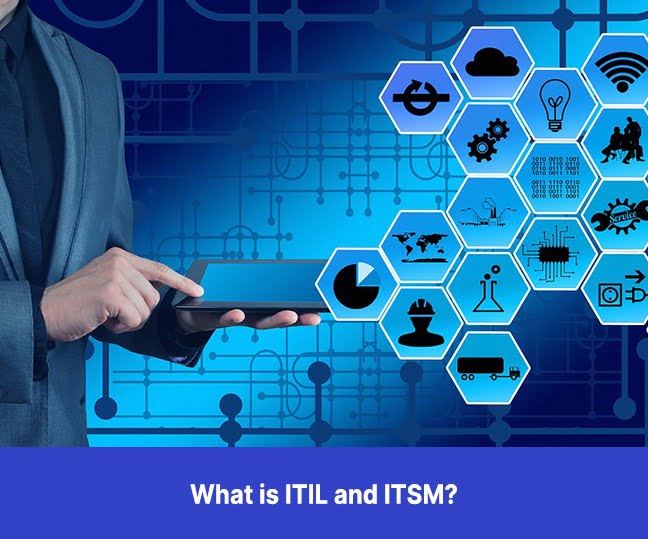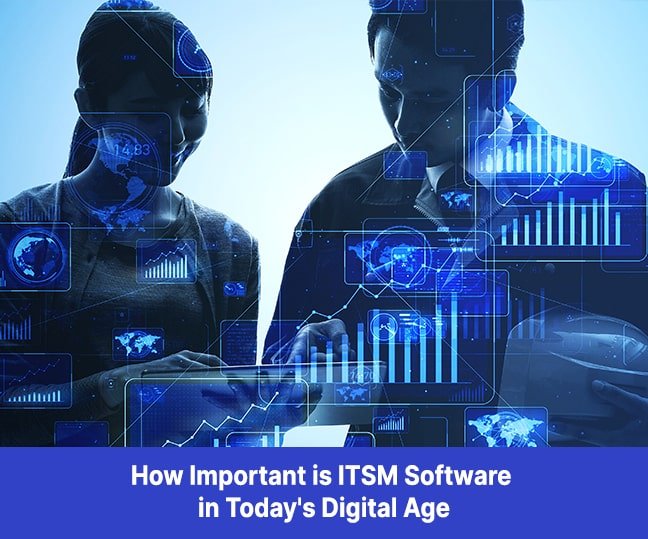ITIL and ITSM have growing preominence in current business landscapes. However, people often perceive that these two terms are non-comparable and distinct. Your business will be gaining very little when you seek to consider these terms independently.
ITIL and ITSM add value to businesses through cost efficiency, reduced downtime, agility, and operational efficiency. Therefore, Managed Service Providers (MSPs) are looking to integrate ITIL and ITSM into their business philosophy for IT management software.
If you are looking to understand how organisations offer IT support, you need to be knowledgeable about the key differences between ITIL and ITSM. Often they are used interchangeably in the IT sector. However, are they similar terms? What are the key differences that set them apart? Let’s explore them in detail below.
What is ITIL (IT Infrastructure Library)?
ITIL, short for Information Technology Infrastructure Library, refers to the set or framework of ITSM (IT Service Management) practices. It helps organisations achieve efficiency by increasing enterprise value through technology integration. The checklists, tasks, procedures, and processes are not specific to any particular organisation. There are five distinct stages that cover different ITSM lifecycles in its service catalogue. These stages include:
- Service Operation
- Service Transition
- Service Design
- Service Strategy
Now that we have covered ITIL basics let’s explore some of its benefits.
- Increased efficiency and guaranteed success
- Easy identification of root cause and issue resolving
- IT assets’ ROI increases
- Optimised asset utilisation
- Better cost-effective systems to manage services’ demand
- Better collaboration of business and IT
What is ITSM (IT Service Management)?
ITSM refers to the management of IT operational services like designing, planning, operating, delivering and controlling the various activities involved in IT management. It is more of a strategic approach that helps organisations deliver value to consumers with the management of IT in its various domains. It is a customer-focused endeavour where businesses continually look for improvement and efficiency.
To put it lightly, ITSM can be the best-defined group of policies and procedures that an organisation undertakes to manage, execute and plan the different IT services available to its stakeholders. Efficiency and customer satisfaction are the two key metrics that govern the practices in ITSM.
Integration of ITSM entails many benefits to the organisation. Some of the advantages of ITSM include:
- Cost savings for operational processes
- Improved efficacy and effectiveness
- Greater transparency of business operations
- Improved customer experience
- Greater emphasis on customer satisfaction
- Reduced workload and better ROI
- Uptime monitoring
Difference between ITIL & ITSM
ITSM refers to the management process of different IT services. On the other hand, ITIL serves as the framework, offering guidelines and processes that can integrate the essential IT services in an organisation. The relationship between the two is more symbolic, where ITIL encompasses all that is prescribed within ITSM. However, there are some key differences, some of which are discussed below:
- ITIL refers to the “how”, whereas ITSM is more concerned with the “what” aspect of Information Technology in business
- From an organisational perspective, ITSM is macro-focused while ITIL is micro-focused
- ITSM is the collection of methodologies to manage IT services, while ITIL serves as the best framework of services and tools for service provision.
Did you know that there are several other frameworks for ITSM? Some of the alternatives of ITIL include:
- Lean
- Agile and DevOps
- MOF (Microsoft Operations Framework)
- FitSM
- COBIT (Control Objectives for Information and Related Technologies)
Despite these alternatives, ITIL is still an enduring and influential framework of ITSM. The constant association of ITSM with ITIL often gave these terms similar hues of meaning. Essentially, ITSM and ITIL are never too different in business and practice. In fact, they complement each other on different processes relating to the strategic implementation of IT.



















